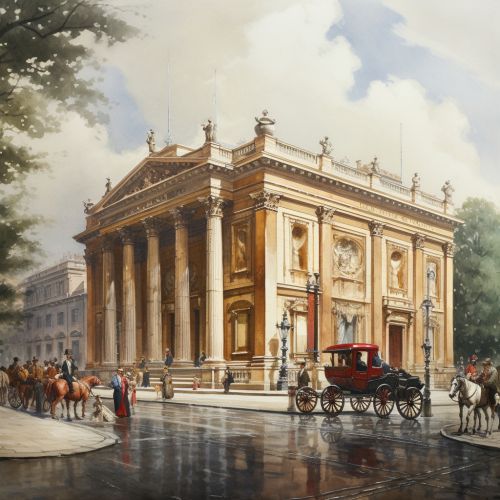Royal Institution
History
The Royal Institution (RI) is a British organization dedicated to scientific education and research, based in London. It was founded in 1799 by leading British scientists of the age, including Henry Cavendish and its first president, George Finch, 9th Earl of Winchilsea. The institution's foundational purpose was to introduce new technologies and teach science to the general public.


Structure and Governance
The Royal Institution is governed by a Board of Trustees, which is responsible for setting the strategic direction of the institution and ensuring its financial stability. The Board is made up of individuals from a variety of backgrounds, including science, education, business, and the arts. The day-to-day management of the institution is carried out by a Director, who is appointed by the Board.
Activities
The Royal Institution carries out a wide range of activities aimed at promoting public engagement with science. These include public lectures, scientific demonstrations, and exhibitions. The institution's annual Christmas Lectures are particularly well-known. These lectures, which have been held since 1825, are designed to present complex scientific issues in an accessible way to a general audience.
Research
In addition to its public engagement activities, the Royal Institution also conducts research in various areas of science. The institution has a long history of scientific discovery, with 14 Nobel Prizes having been awarded for work carried out at the institution. Notable discoveries made at the institution include the invention of the electric generator and the discovery of ten chemical elements.
Building and Facilities
The Royal Institution is housed in a Grade I listed building in Mayfair, London. The building includes a number of notable features, including the famous Lecture Theatre, a Research Laboratory, a Library and a Museum. The building is also home to the Faraday Museum, which is dedicated to the life and work of Michael Faraday, one of the institution's most famous former directors.
Influence and Legacy
The Royal Institution has had a significant influence on the development of science in the UK and around the world. Its public lectures and demonstrations have helped to popularize science and make it accessible to a wide audience. The institution's research has also contributed to major scientific advancements. The Royal Institution continues to play a key role in promoting science and scientific literacy today.
